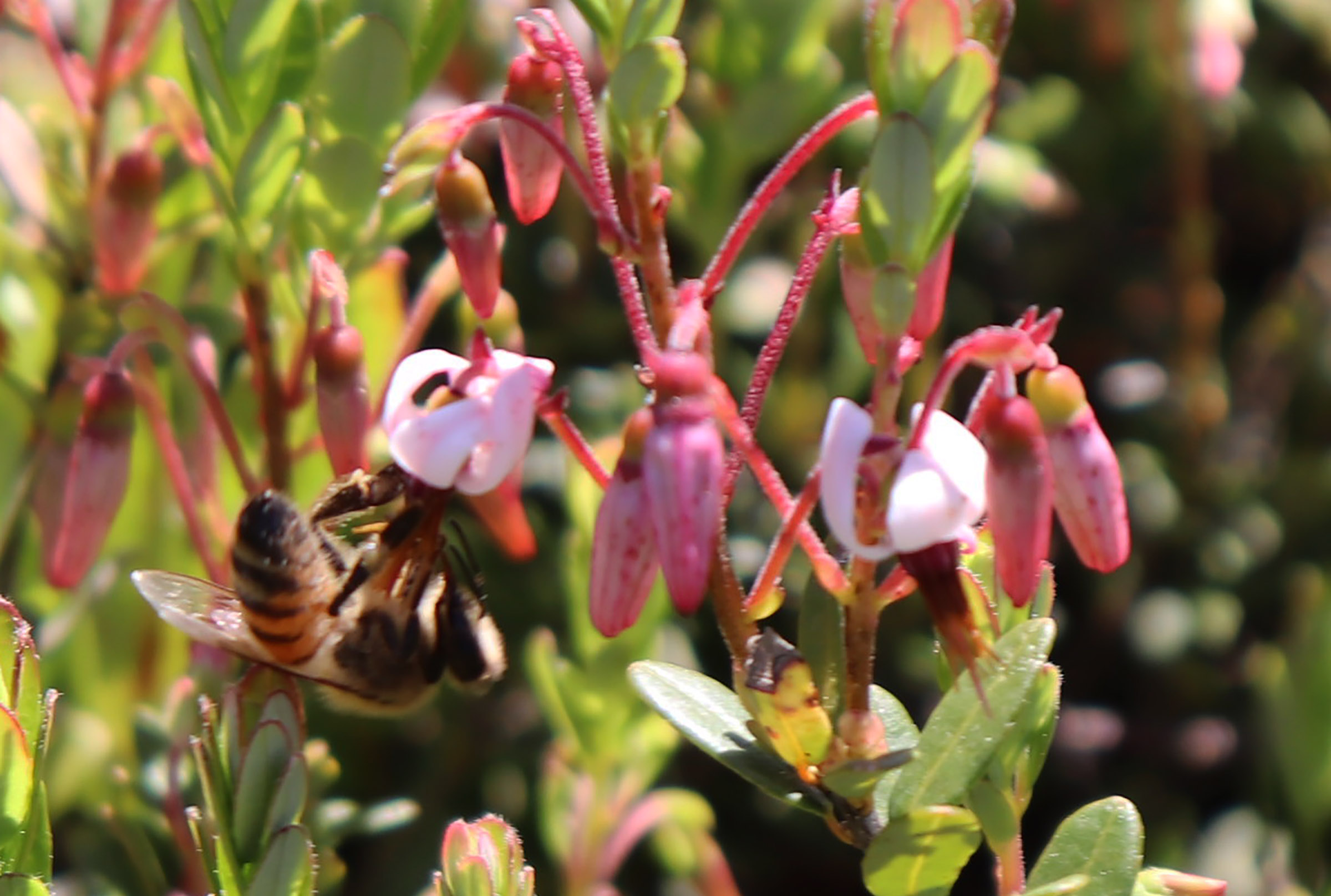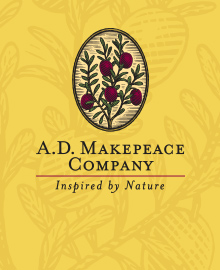Blossom Season on the Bogs
 The bees are back!
The bees are back!
While many think of cranberries as a fall fruit requiring much care and attention during the cooler months, the real work begins long before the autumn air arrives.
During this time of year, the tender vines are developing buds that will turn into tiny cranberry blossoms. As the bud and blossom develop, it is crucial to protect them from frost damage, provide adequate nutrients, and establish a healthy environment for growth. This phase of care and protection leads to the next critical element of crop success: pollination.
Typically, blossom time extends from mid-June through mid-July. As the tiny buds begins to open, its outer pink petals reveal a white flower. This is a unique time of year when the thousands of tiny white flowers cover the bog’s surface, resembling a light dusting of winter snow. The sheer volume of flowers that require pollination vastly outweighs the number of native pollinators in a given bog area.
This year, the bees we acquire for agricultural purposes begin arriving during the week of June 7. It takes about a week for them to be placed around the property. Needless to say, some areas that are typically accessible will be closed off during that time, and we urge everyone to use caution throughout cranberry country.
The rule of thumb is approximately two honeybee hives per acre of cranberries or one bumble bee box per acre. While the two varieties of bees cannot be in close proximity to each other, each has its own strengths and characteristics. Although the cranberry industry has long debated the most beneficial bee, today the honeybee remains the primary bee of choice throughout the industry.
Plymouth County, Massachusetts
June, 2021

 CENTERVILLE, MA — Justin O’Connor has been elected President of the Cape Cod Landscape Association (CCLA). O’Connor also serves as the Cape and Islands Sales Representative for Read Custom Soils (RCS) Division of the A.D. Makepeace Company.
CENTERVILLE, MA — Justin O’Connor has been elected President of the Cape Cod Landscape Association (CCLA). O’Connor also serves as the Cape and Islands Sales Representative for Read Custom Soils (RCS) Division of the A.D. Makepeace Company.